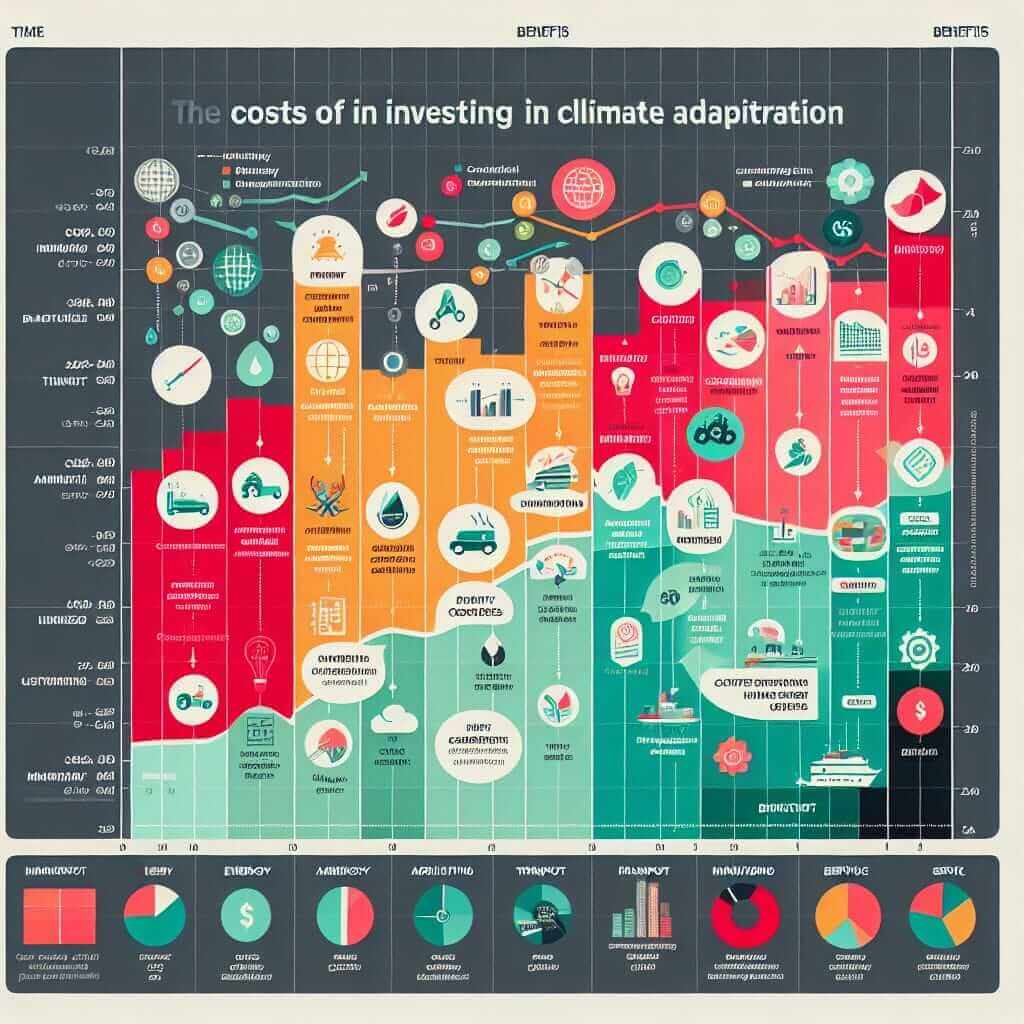The IELTS Reading test is designed to evaluate a candidate’s ability to read and understand various forms of written English, ranging from descriptive passages to analytical texts. One of the prevalent and contemporary themes that often appear in the IELTS Reading section is climate change and its repercussions. In recent years, the topic of climate adaptation and its economic consequences has gained traction, making it a significant subject for IELTS aspirants to focus on. Understanding the economic impacts of climate adaptation is not only relevant but also crucial given the current global climate scenario.
In this article, we will explore a comprehensive reading passage on the economic consequences of climate adaptation, formatted to mirror the structure of the IELTS Reading test. This will be followed by a variety of question types and detailed answer explanations to help you prepare effectively.
Reading Passage
The Economic Consequences of Climate Adaptation
Climate adaptation refers to the process of adjusting to current or expected climate change and its effects. Effective climate adaptation measures can mitigate negative impacts and exploit potential benefits, but they also come with significant economic consequences. These consequences can be broadly categorized into three main areas: costs of implementation, economic benefits from reduced risks, and secondary economic effects.
Costs of Implementation
Implementing climate adaptation measures requires substantial financial investments. Governments and businesses must allocate resources to construct adaptive infrastructure, such as storm surge barriers, flood defense systems, and renewable energy sources. Additionally, sectors like agriculture and water management need to adapt to changing climate conditions, which often involves high upfront costs for research, development, and modification of existing systems.
Economic Benefits from Reduced Risks
On the flip side, the economic benefits from reduced risks can be substantial. Effective adaptation can reduce the frequency and severity of climate-related disasters, such as hurricanes, floods, and droughts. This will not only save lives but also diminish the economic losses associated with these events. By investing in robust adaptation strategies, countries can foster a more resilient economy, reducing long-term expenses related to disaster recovery and infrastructure repair.
Secondary Economic Effects
Beyond direct costs and benefits, climate adaptation has secondary economic effects that can influence various sectors. For instance, the shift towards renewable energy can generate new industries and jobs, contributing to economic growth. Conversely, regions that fail to adapt may face economic instability, decreased agricultural productivity, and loss of tourism revenue. The competitive advantage seen in early-adopting regions might catalyze a global disparity in economic stability and growth.
Overall, while the initial costs of climate adaptation might be high, the long-term economic benefits and secondary positive effects should not be underestimated. Policy-makers, businesses, and communities must weigh these factors carefully to navigate the complex landscape of climate adaptation.
Questions
Questions 1-5: True/False/Not Given
Do the following statements agree with the information given in the reading passage? Write:
- True if the statement agrees with the information
- False if the statement contradicts the information
- Not Given if there is no information on this
- Implementing climate adaptation measures is inexpensive.
- Climate adaptation can reduce the severity of hurricanes.
- There are no economic benefits to climate adaptation.
- Renewable energy is part of climate adaptation strategies.
- Early-adopting regions may have a competitive economic advantage.
Questions 6-9: Matching Information
Match each statement with the correct section (A, B, C).
i. Discusses the financial investments required for adaptation
ii. Highlights the potential job creation from climate adaptation
iii. Details the economic losses prevented by effective adaptation
iv. Explores the possible economic instability from lack of adaptation
A. Costs of Implementation
B. Economic Benefits from Reduced Risks
C. Secondary Economic Effects
Questions 10-11: Sentence Completion
Complete the sentences below using NO MORE THAN TWO WORDS from the passage.
- Adapting the agriculture and water management sectors often involves high ____.
- Policymakers must consider ____ factors to navigate climate adaptation.
Answers and Explanations
True/False/Not Given
- False – The passage states that implementing climate adaptation measures requires substantial financial investments.
- True – The passage states that effective adaptation can reduce the frequency and severity of climate-related disasters, including hurricanes.
- False – The passage discusses multiple economic benefits, including reduced risk and new job opportunities.
- True – Renewable energy sources are mentioned as part of adaptive infrastructure in the Costs of Implementation section.
- True – The passage mentions that early-adopting regions might have a competitive economic advantage.
Matching Information
- i. A (Costs of Implementation)
- ii. C (Secondary Economic Effects)
- iii. B (Economic Benefits from Reduced Risks)
- iv. C (Secondary Economic Effects)
Sentence Completion
- upfront costs
- multiple
Common Mistakes to Avoid
- Misinterpreting Keywords: Ensure that you identify and understand keywords correctly to avoid confusion.
- Overlooking Details: Pay attention to small details that might change the meaning of statements.
- Time Management: Practice managing your time effectively to answer all questions within the given time.
Vocabulary
- Mitigate (verb): [mɪtɪˌɡeɪt] – to make less severe
- Infrastructure (noun): [ˈɪnfrəˌstrʌkʧər] – the basic physical systems of a business or nation
- Catalyze (verb): [ˈkætəˌlaɪz] – to cause or accelerate a reaction
Grammar Focus
- Relative Clauses: “Governments and businesses must allocate resources to construct adaptive infrastructure, such as storm surge barriers, flood defense systems, and renewable energy sources.”
- Conditional Sentences: “If effective adaptation measures are implemented, the severity of climate-related disasters can be reduced, leading to substantial economic benefits.”

Advice for High Reading Scores
- Practice Regularly: Consistent practice will help improve your reading speed and comprehension.
- Understand Question Types: Familiarize yourself with different question types and strategies to tackle them.
- Expand Your Vocabulary: A broad vocabulary will assist in better understanding and interpreting passages.
By carefully studying these strategies and practicing with the provided passage and questions, you will be better equipped to achieve a high score in the IELTS Reading section. Good luck!